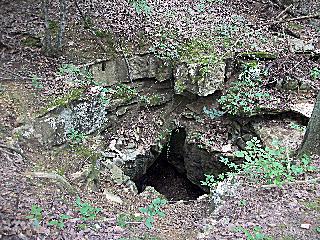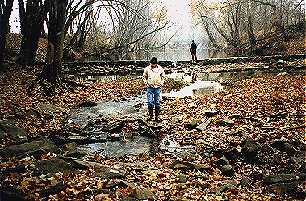Land Acquisition and Management
|
Property purchased by the IKC |

From the previous slides, it's apparent that caves and karst offer unique management challenges. Many landowners are not prepared to deal with endangered species; unusual geology and hydrology; or the occasional, irresponsible spelunker. Thus, from its inception, the IKC has sought opportunities to acquire management rights to a number of karst features. In so doing, the IKC frees landowners from these difficulties while allowing compatible, carefully monitored use of the karst resources for legitimate scientific study and recreation. |
|---|---|
|
Property managed by lease |

Initially, the IKC's land management consisted of leasing agreements. For a nominal fee (usually $5 or less per year), the IKC has acquired management rights to several significant caves in Indiana. However -- be it through change of residence, adverse incidents, or death -- the relationship with landowners can and often does change. Therefore, leasing agreements do not ensure protection of the resources in perpetuity. To remedy this, in recent years the IKC has more actively sought opportunities to purchase karst properties outright. |
|
Property managed by easement |

Another opportunity for protection of karst properties is the conservation easement. If a landowner wants to restrict or prohibit activities that are karst unfriendly, usage rights may be donated to the Conservancy. These are recorded with the deed, and remain with the property when ownership changes hands. The IKC thus retains the right to protect the property according to the original landowner's wishes, even after his death. Landowners also receive relief of property taxes while retaining ownership and use of their land within the covenants of the easement. |
Karst landowners have been very happy with the active management practices of the IKC. In fact, no collaborative venture between the IKC and a karst landowner has ever been terminated due to management issues. The IKC's special management touch, coupled with sensitivity to the landowner's needs, invariably results in a win-win situation.